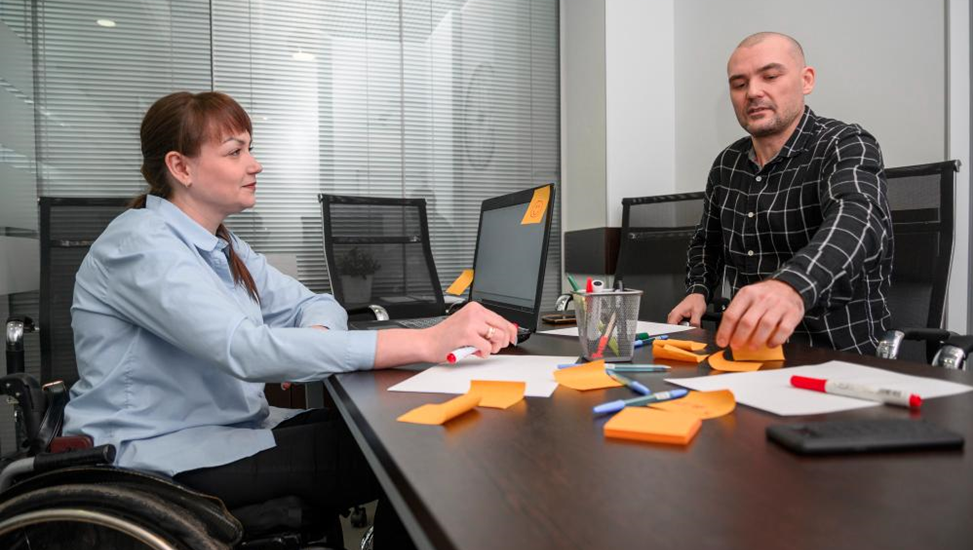- October 15, 2024
- Posted by: Roth Jhynnae
- Category: Entrepreneurship, Leadership, Professional Development, Professional Networking, Thoughts and Insights

For young adults with disabilities, pursuing a business career is not merely a professional choice but a step toward reshaping perceptions about their capabilities and roles in society. The journey is filled with opportunities for personal and economic growth, providing a platform to demonstrate that the real measure of success is the ability to harness one’s potential and make impactful contributions, regardless of the challenges one might face.
Achieve Economic Independence
Financial autonomy is a cornerstone of adult life, and for young adults with disabilities, a business career provides a vital opportunity to achieve it. Engaging in business roles not only offers stable income but also equips individuals with the knowledge to manage their financial affairs with greater competence. This economic empowerment is crucial, as it facilitates a higher degree of independence and enables more control over personal and professional life choices.
Build Confidence through Success
Success in business is not just about financial gains; it’s also about the personal triumphs that come with overcoming challenges. For young adults with disabilities, each professional achievement serves as a powerful counter to societal biases and self-doubt. Thriving in business roles boosts self-esteem and reinforces an individual’s belief in their capabilities, proving that their contributions are valuable and that their professional identity is not defined by their disability.
Networking Pays Off
In today’s digital world, the importance of face-to-face interactions remains undiminished. Networking is a critical skill in the business world, offering pathways to mentorship, partnerships, and opportunities that might otherwise remain inaccessible. For young adults with disabilities, attending in-person networking events can be a dynamic way to demonstrate their skills and passions, allowing them to form connections that are professionally enriching and personally supportive.
Opportunities for Mentorship
A mentor can be instrumental in helping young adults with disabilities grow in their business careers. With personalized support, mentors guide them through challenges, share practical insights, and build their confidence. This kind of one-on-one relationship offers access to professional advice and knowledge that might be harder to find otherwise, opening doors that lead to both skill development and valuable networking opportunities. By having a mentor, young adults can feel more prepared and empowered to succeed, developing a deeper sense of capability and belonging in the workplace.
Chance to Boost Leadership Skills
In the fast-paced world of business, you’ll find abundant opportunities to refine key skills like communication, problem-solving, and critical thinking. As you cultivate these essential abilities, you not only bridge the gap between yourself and your peers but also equip yourself to tackle a variety of challenges in and beyond the workplace. Each stride you make in enhancing these skills not only boosts your professional profile but also amplifies your ability to navigate and influence your environment effectively.
Path for Self-advocacy
As you embark on your business career, adept self-advocacy becomes your tool for carving out a supportive work environment tailored to your needs and strengths. This skill empowers you to negotiate effectively for reasonable accommodations and roles that amplify your professional impact. By asserting your needs clearly, you ensure your workplace is not only accessible but fully conducive to your career growth.
Inspire Entrepreneurial Eventuality
Pursuing a business career equips young adults with disabilities with the knowledge and experience needed to explore entrepreneurship. Through their roles in various business environments, they gain firsthand insight into how companies operate—learning about strategy, management, finance, and customer relations. This exposure not only builds their skills but also helps them understand what it takes to run a successful venture. Moreover, being part of a professional network allows them to connect with mentors, partners, and potential investors who can support their entrepreneurial ambitions.